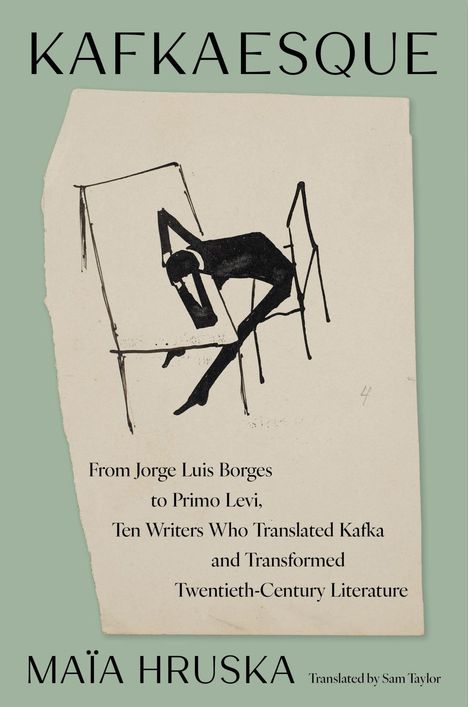Maïa Hruska: Kafkaesque, Gebunden
Kafkaesque
- From Jorge Luis Borges to Primo Levi, Ten Writers Who Translated Kafka and Transformed Twentieth-Century Literature
Sie können den Titel schon jetzt bestellen. Versand an Sie erfolgt gleich nach Verfügbarkeit.
- Übersetzung:
- Sam Taylor
- Verlag:
- Harper Collins Publ. USA, 05/2026
- Einband:
- Gebunden
- Sprache:
- Englisch
- ISBN-13:
- 9780063486249
- Artikelnummer:
- 12414455
- Umfang:
- 272 Seiten
- Gewicht:
- 644 g
- Maße:
- 229 x 152 mm
- Stärke:
- 15 mm
- Erscheinungstermin:
- 12.5.2026
- Hinweis
-
Achtung: Artikel ist nicht in deutscher Sprache!
Klappentext
A lively inquiry into a literary genius, the translators who immortalized him, and what it means to cultivate a rich inner life in turbulent times
"What happens to a writer's work when it is translated--specifically, what happens if his name is Franz Kafka?"
In Kafkaesque , Maïa Hruska traces the strange, shape-shifting legacy of one of literature's most elusive figures---not through traditional biography but through the lives of his earliest and most influential translators. With rigor and élan, she shows us how our understanding of Kafka is inevitably filtered through these voices, many of whom were, or would become, major writers and thinkers in their own right.
Jorge Luis Borges rendered Kafka into Spanish, recognizing in him a fellow architect of the infinite. Primo Levi used the German he acquired in a concentration camp to bring The Trial into Italian despite the "psychoanalytic repulsion" he felt toward Kafka. Bruno Schulz published his Polish edition of the same novel before being shot by a Nazi officer. Vladimir Nabokov annotated The Metamorphosis in exile, having undergone his own transformation--from native to foreigner. Milena Jesenská, Kafka's great love, translated him into Czech, a language he was both surrounded by and estranged from.
What emerges across these essays isn't just a portrait of a legendary writer and his translators but also a portrait of the twentieth century itself---its fractures and displacements, its aesthetic revolutions, its ethical crises. Part cultural history, part group biography, Kafkaesque is a dazzling meditation on language, identity, and the irreducible strangeness of reading and being read.


